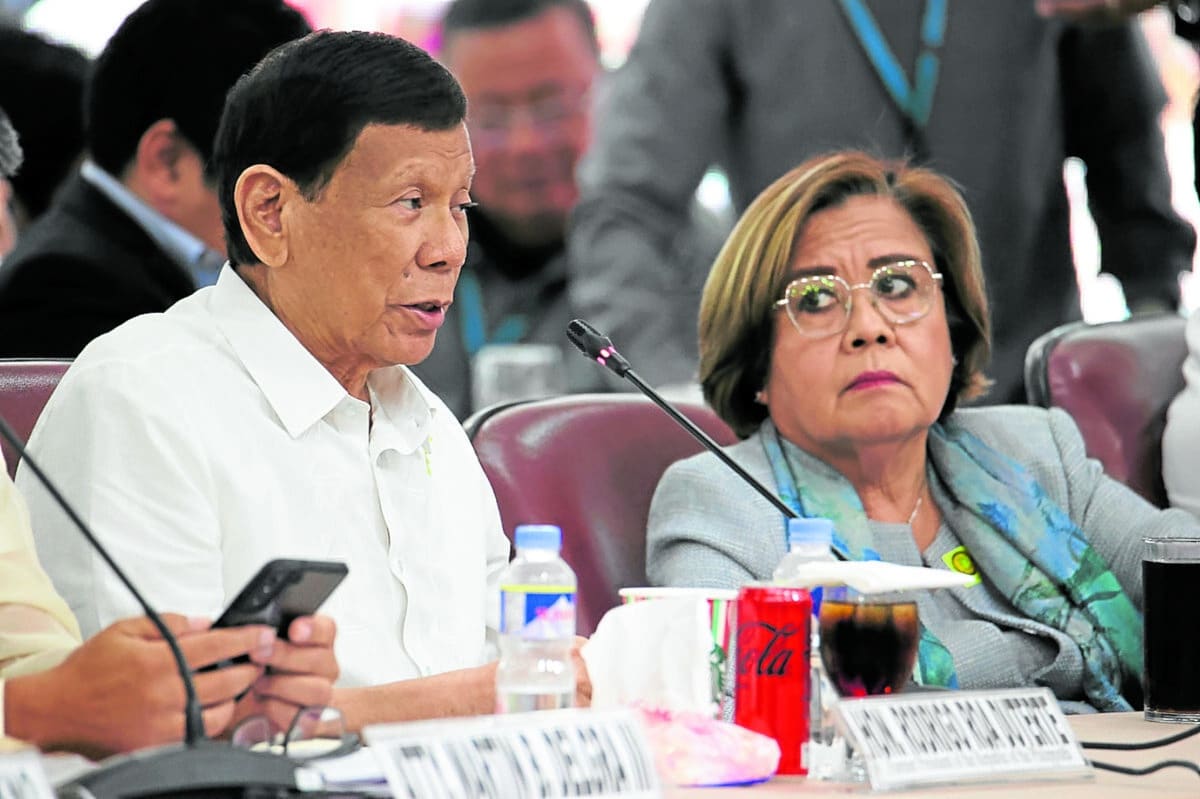House panel to invite Duterte to drug war probe again

OLD WOUNDS MADE RAW. Former President Rodrigo Duterte finds himself seated next to his critic former Sen. Leila de Lima at the House quad committee hearing on the drug war on Nov. 13, 2024. — PHOTOS BY NIÑO JESUS ORBETA
MANILA, Philippines — The House of Representatives quad committee will invite former President Rodrigo Duterte again to its 12th hearing on November 21, according to Surigao del Norte 2nd District Rep. Robert Ace Barbers.
Duterte attended the mega panel’s probe into his administration’s bloody war on drugs for the first time on Wednesday, November 13. He was accompanied by his legal counsel Martin Delgra III and former presidential spokesperson and legal adviser Salvador Panelo.
READ: Questions directed to Duterte had ‘wrong premises’ – Panelo
“We will still invite the former president because he is included in the discussion. As long as the topic involves EJKs (extrajudicial killings) and drugs because he is part of the list of our invited resource persons,” Barbers told reporters in an interview on Thursday.
“If the [former] president wants to join us and attend, then that is very okay, but if he opts to skip the probe, we will respect his decision,” he added.
Article continues after this advertisementThe House quad panel tackled Duterte’s statements in past interviews and the Senate drug war probe, including his pronouncement taking “full, legal, moral responsibility” for his administration’s drug war.
Article continues after this advertisementDuring the hearing, Duterte admitted to planting evidence on a suspected criminal when he was the mayor of Davao City “as part of strategy.”
He also said his statement on taking responsibility can be equated to an “extrajudicial confession of guilt.”
“Yes, because I ordered the campaign against illegal drugs. At kung anong ginawa nila, whether legal or not, ako nag-utos (And whatever they did, whether legal or not, I ordered it). In that sense, I take that responsibility for their actions,” Duterte said.
He also reiterated that he killed six or seven people when he was Davao City mayor, and that he roamed the city waiting for the chance to kill criminals.
Based on reports, the drug war left at least 6,000 people dead. However, data from human rights watchdog Karapatan showed that at least 30,000 cases of EJKs were committed during the campaign.